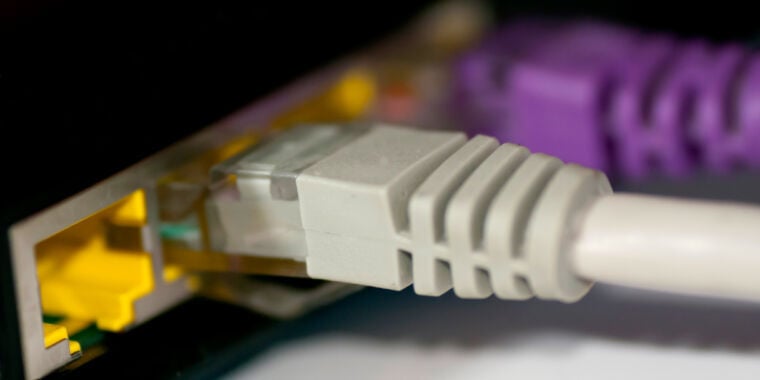- cross-posted to:
- technology@lemmy.world
- cross-posted to:
- technology@lemmy.world
And the NSA quietly installed their own.
malware is what gave the DOJ the ability to do this, so yeah,
I like to imagine that one arm of the American surveillance state started the exploit and the DOJ wrapped it up only after Fancy Bear noticed exploitable routers. I mean, there wasn’t any evidence that this originated from Russia in the article, just the assertion that it was so. Who’s checking?
Honest question: Assuming nation states have the all-powerful ability to install software on your networking gear, which country would you rather have? USA or Russia?
is switching to Cups and String an option?
I hear pigeons aren’t too hard to breed.
Those are all compromised too!
They taste good BBQ’d too.
Closest thing we have is end to end encryption mixed with services like tor to obfuscate our positions. Privacy is no longer opt out and is increasingly harder to achieve.
That’s already been hacked by the NSA
Cup with string attach to ball is number one game on Siberian winternet.
Zimbabwe. I feel like they’d have a harder time doing any real damage to me
deleted by creator
If you’re in the USA it seems clearly better to have Russian since they can do much less to affect your life and vice versa.
If the US government wants to spy on you, they have boots on the ground. Russia has been involved with ransomeware campaigns.
Same, rather get spied on from someone across the ocean you know? At least they won’t arrest me.
The country you live in.
The greatest malware ever installed was the idea that we shouldn’t fear our governments and should trust them implicitly.
An important detail to mention is that every router involved were very old Ubiquiti EdgeRouters which were EOL’d like a year or two ago and they had remote administration enabled and were still using the default admin user and password.
I was running an edge router x until a few months ago. It was the cheapest set up to deploy a unifi wireless access point for my apartment. I was worried until I read:
It affected routers running Ubiquiti’s EdgeOS, but only those that had not changed their default administrative password. Access to the routers allowed the hacking group to “conceal and otherwise enable a variety of crimes,” the DOJ claims, including spearphishing and credential harvesting in the US and abroad.
Change you default passwords friends. Given that the edge router is not the most noob friendly device to set up, I’m curious how the user base of these devices is not changing the PW.
Aka people who just plugged it in and left it as long as it works. These are not the kind of people who would have done anything if informed that they had an issue. On one hand I don’t like the idea of governments fixing private property, but they were never going to be fixed by the owner.
Well the government wasn’t “fixing private property”, as much as they were “expelling hostile foreign nationals from private property that were being utilized for malicious purposes”. They only acted in the case that one of these devices was an active participant in a botnet.
I know the government touching your stuff is an icky thought, I agree. But the only alternative in this case is you being held personally liable for your devices being used to commit cyber crime by a hostile government entity, which is a much worse thought.
Like if you own a gun and it’s stolen and you don’t report it, and a crime is committed with it, you can be charged with a crime in many states. It wouldn’t be the biggest leap for something like that to apply here, if not now then in the future. I think the government fixing the problem for us and leaving us alone about it is just about the best outcome we could ask for.
Why is the default setting to enable remote administration?
Because these routers went out to everybody. Tech heads and idiots alike. It is far easier for ISPs to simply remote in than rely on the consumer who may be an idiot.
This is why I run my own router. I’m sure my cable modem has a way in but then you’d have to get past my router.
Ditto. I went one step further and put OpenWRT on mine.
Messed up thing is, some ISPs make it an absolute bitch to make this work.
Yup. I used to think it was malicious by the ISPs but really it’s just all the end technology is kinda A mess for them to have control of the network for you. Which I’m gonna be honest 99.9% of customers NEED. lol
agreed my local area isp switched to calix for most of our customers and it’s really nice just to have a management interface to all of our customers and be able to fix it without having to roll a truck
Yup. It’s never perfect but from a customer to tech support perspective it’s a lot easier for almost all end users. And anyone else can usually figure their own shit out anyways so that’s heavily offered also.
I can’t think of a single ISP that was using old Ubiquiti EdgeOS routers as consumer routers.
So if we’re not talking about ISPs sending this out, then the reason that remote access gets turned on by default is incase the company sysadmin couldn’t physically get to the device, and they assumed the company had a firewall.
Companies almost always prioritise OOTB setup and operationality over security when it comes to defaults.
They likely weren’t enabled by default at all. Because that’s generally not how company IT departments even remote manage these things. And the affected devices are the firewalls.
Remote administration was turned on manually, by the owners of these devices, because they didn’t know what they were doing.
20+ years ago I managed the installation of a high performance compute cluster purchased from IBM. Their techs did all the initial installation and setup, right down to using their well known default password of “PASSW0RD” (with a zero for the ‘o’) for all root/admin accounts…. It took less than 20 minutes for it to be compromised by an IP address in China.
At least other vendors like HP use random root/admin passwords printed on cards physically attached to new equipment…
When I used to rack and stack servers, many moons ago, we would always connect them to a switch with LAN only so we could use SSH/SCP to harden them before they got exposed. This was for .gov stuff that would get attacked instantly.
deleted by creator
Because without it, the DOJ would have no control over you, duh
It wasn’t. Remote administration was enabled manually on these devices, and the admin passwords left default.
Because it was infected with malware from hostile countries.
DOJ should quietly remove US malware too
During the court-sanctioned intrusion, the DOJ “enabled temporary collection of non-content routing information” that would “expose GRU attempts to thwart the operation.” This did not “impact the routers’ normal functionality or collect legitimate user content information,” the DOJ claims.
I bet.
If they wanted to, absolutely they could. They didn’t though. Unless they thought you were a spy…
I think it’s best to only buy routers supporting openwrt in the first place and switch firmware to openwrt asap. Openwrt or Opnsense or anything open source and well maintained will guarantee security updates years and years beyond the original manufactures firmware.
Have you ever used a EdgeRouter?
No, but openwrt seems to be available for some of their models if that is your question.
This is the best summary I could come up with:
More than 1,000 Ubiquiti routers in homes and small businesses were infected with malware used by Russian-backed agents to coordinate them into a botnet for crime and spy operations, according to the Justice Department.
That malware, which worked as a botnet for the Russian hacking group Fancy Bear, was removed in January 2024 under a secret court order as part of “Operation Dying Ember,” according to the FBI’s director.
Unlike previous attacks by Fancy Bear—that the DOJ ties to GRU Military Unit 26165, which is also known as APT 28, Sofacy Group, and Sednit, among other monikers—the Ubiquiti intrusion relied on a known malware, Moobot.
“For the second time in two months, we’ve disrupted state-sponsored hackers from launching cyber-attacks behind the cover of compromised US routers,” said Deputy Attorney General Lisa Monaco in a press release.
Christopher A. Wray, director of the FBI, expanded on the Fancy Bear operation and international hacking threats generally at the ongoing Munich Security Conference.
Malware said by the DOJ to be tied to the Chinese government was removed from SOHO routers by the FBI last month in similar fashion to the most recently revealed operation, targeting Cisco and Netgear devices that had mostly reached their end of life and were no longer receiving security patches.
The original article contains 550 words, the summary contains 211 words. Saved 62%. I’m a bot and I’m open source!
Important detail left out of the TL;DR: The method of infection required that the device still had the default admin password. As long as you changed the admin password when you setup the device this wouldn’t have impacted you.
It’s incredible how many people leave their router with the default password
I’m smart, I never leave the default password.
I always change it to 1 2 3 4 5, the same as my luggage.
Thanks for this important information. That is the 1st thing we do after getting a new Router. (change its username and password)










